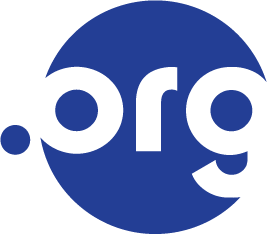


|
||
|
||
Today, .ORG, The Public Interest Registry (www.pir.org), the company behind the .ORG domain name, is the first open generic Top-Level Domain to successfully sign the .ORG zone file with Domain Name Security Extensions (DNSSEC). To date, the .ORG zone is the largest domain registry to implement the security measure.
“We feel that implementing DNSSEC is a fundamental step in the upgrade of Internet security and stability,” says Alexa Raad, CEO of .ORG, The Public Interest Registry. “With continuing growth of the Internet and the increasing number of applications depending on the DNS, this is a critical step in the evolution of the Internet. Pioneering technologies which are in the public interest, such as DNSSEC, are core to .ORG’s mission.”
In June 2008, the PIR proposal to implement DNSSEC within the .ORG zone was unanimously approved by the board of Internet Corporation for Assigned Names and Numbers (ICANN) after a thorough review by ICANN’s Security and Stability Committee. As the first open generic Top-Level Domain authorized to implement DNSSEC, .ORG launched the DNSSEC Industry Coalition in August 2008 to execute an industry wide education and adoption plan within the Internet infrastructure community.
“This is a major step forward in improving security for Internet users and we congratulate PIR on this enormous accomplishment,” said Ram Mohan Executive VP and CTO for Afilias, PIR’s technology provider. “While Afilias’ registry and DNS technology will ensure that the .ORG zone is properly signed with DNSSEC, the additional collaboration with testing partners during the quiet period will provide intelligence for live use scenarios to ensure for the best possible end user experience when .ORG owners add this technology to their domains.”
Signing the .ORG zone is an important step to realizing full DNSSEC implementation across the Chain of Trust. PIR will initially take a phased approach to full production readiness with DNSSEC for end users. The registry will be in a DNSSEC quiet period to manually test the signed zone to mitigate any risks to the larger .ORG community.
“While DNSSEC will not solve all the problems associated with DNS, it is an important step towards increased authentication of DNS responses. I hope other Top-Level Domains will follow PIR’s lead,” says Vint Cerf, Chief Internet Evangelist, Google.
About Domain Name Security Extensions (DNSSEC)
With DNSSEC, Internet users know that their Internet-based communications such as web site visits and email correspondence actually connect to the parties they intend to reach. DNSSEC thwarts attacks such as pharming, cache poisoning, and DNS redirection that have been used to commit fraud, distribute malware, or steal personal or confidential information. For more information on DNSSEC, please visit http://pir.org/dnssec.
About .ORG, The Public Interest Registry
Trusted across all ages, backgrounds and nationalities, .ORG is where people turn to find credible information, get involved, fund causes and support advocacy. .ORG, The Public Interest Registry empowers the global noncommercial community to use the Internet more effectively and, concurrently, takes a leadership position among Internet stakeholders on policy and related issues. The .ORG domain is the Internet’s third largest “generic” or non-country specific top-level domain with more than 7 million domain names registered worldwide. .ORG, The Public Interest Registry was founded by the Internet Society in 2002. It is based in Reston, Virginia, USA.
Sponsored byDNIB.com

Sponsored byIPv4.Global

Sponsored byCSC

Sponsored byVerisign

Sponsored byVerisign

Sponsored byRadix

Sponsored byWhoisXML API
